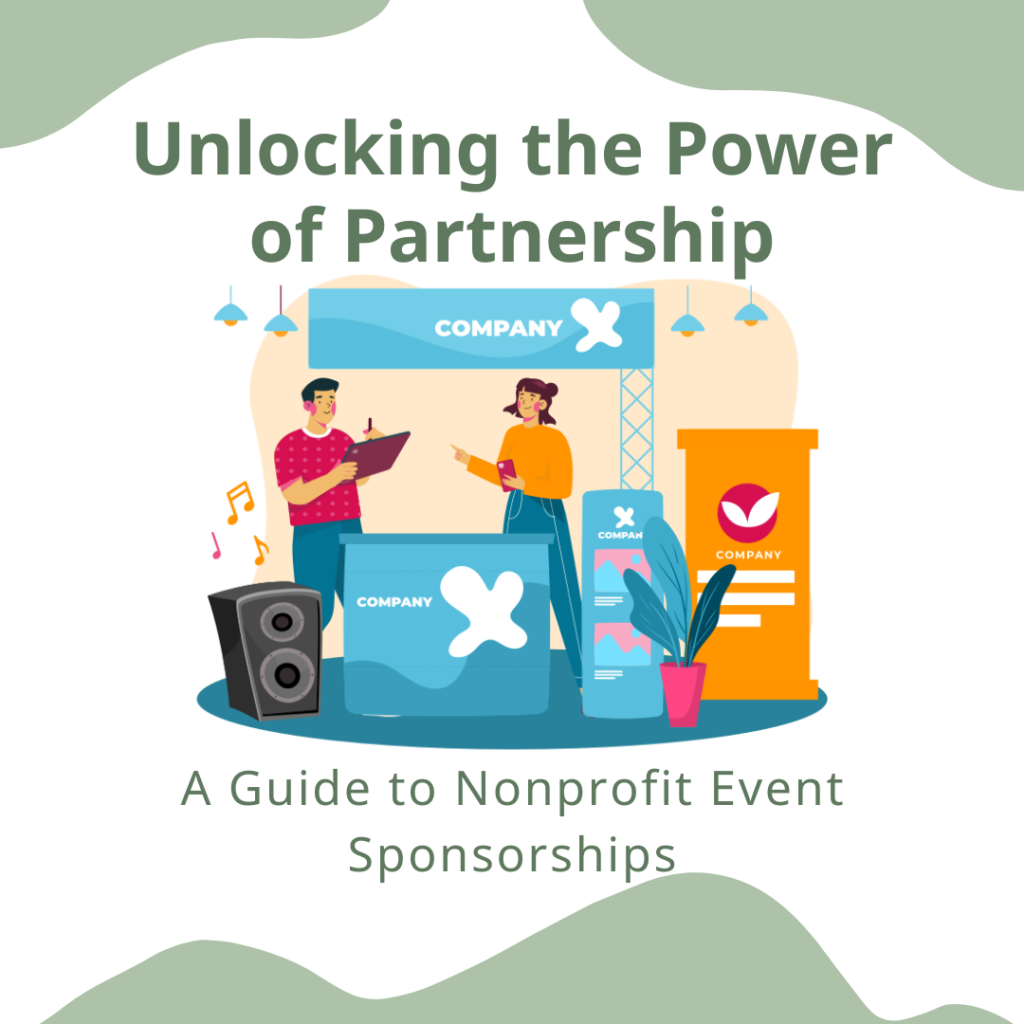
Unlocking the Power of Partnership: A Guide to Nonprofit Event Sponsorships
Sponsorship can be a game-changer for your nonprofit events. Not only can it ease the financial burden, but it also opens doors to network with other organizations and expand your supporter base. This guide equips you with the essential steps to secure great nonprofit event sponsorships and build lasting relationships with them for your upcoming event.
Understanding Nonprofit Event Sponsorships
Event sponsorships typically involve a for-profit organization offering financial support to a nonprofit’s event. In return, the nonprofit acknowledges the sponsor’s contribution throughout the event. You’ve likely seen sponsor logos displayed on event materials – a common practice showcasing the valuable partnership between nonprofits and their sponsors.
Proven Strategies to Secure Nonprofit Event Sponsors
There are numerous avenues for attracting sponsors to your events. The key lies in crafting a strategic plan to maximize the benefits for both you and your sponsors. Here’s a roadmap to guide your search:
1. Define a Realistic Sponsorship Goal
Before reaching out to potential sponsors, establish a clear financial goal for your event. Do you aim for sponsors to cover half the cost? Knowing this upfront helps structure your requests, determine the number of organizations to approach, and design compelling sponsorship packages.
Consider broadening your scope beyond just cash sponsorships. Are you open to “in-kind” donations, such as a local restaurant catering your event? This flexibility can attract a wider pool of potential sponsors and boost your organization’s support network.
2. Craft a Compelling Sponsorship Package
Once you have your goal in mind, create a sponsorship package – essentially a sales pitch for potential sponsors. This package should include details about your event, proposed sponsorship levels with corresponding benefits, contact information, and a deadline for sponsorship commitment.
Think of this package as a well-organized document that showcases your organization’s mission, impact, and any visuals that strengthen your case. Online design tools like Canva can help you create a professional-looking document even with limited design experience.
3. Identify Ideal Nonprofit Event Sponsors
Next, dedicate time to researching potential sponsors who align with your cause. Local businesses or organizations that share your mission are a great starting point. For instance, if you run an animal shelter hosting an event, pet food stores or veterinary clinics could be ideal partners. Collaborate with your team to compile a list of potential sponsors, outlining why each is a good fit. This will be crucial for crafting personalized outreach messages in the next step.
4. Develop a Personalized Communication Strategy
Now it’s time to connect with potential sponsors. Determine your outreach method (email, phone call, in-person visit, or paid advertising) and frequency. Leverage your research to personalize your requests, highlighting why their organization would be a perfect match for your event sponsorship.
Continuing with the animal shelter example, personalize your message by mentioning how most of your attendees are animal lovers. This personal touch can significantly increase your chances of connecting with potential sponsors and securing their support.
5. Express Gratitude Through Thoughtful Thank Yous
Showing appreciation to your event sponsors is just as important as thanking your donors. Craft personalized thank-you letters expressing your gratitude. Donor Wrangler will help you streamline this process, allowing you to easily create personalized letters for your sponsors.
Be sure to share the impact of their contribution. If they sponsored a fundraising event, let them know how much you raised and how those funds will be used. Thank them with the same thoughtful approach you use for your donors, always emphasizing the impact of their contribution.
Timing Your Outreach Efforts
Ideally, reach out to potential sponsors at least 3 months before your event. Larger corporations might have lengthy approval processes for sponsorships, so factor this in while securing their support. Existing sponsors might have more flexibility on timing, but generally, provide ample time for budget approvals. Develop a communication plan tailored to both new and recurring sponsors.
Navigating Tax Implications
Nonprofit event sponsorships have certain tax implications. There’s a helpful article on this topic on the IRS website. It would be good practice to consult with a tax professional to ensure you handle individual tax situations appropriately.
Reaping the Rewards of Nonprofit Event Sponsorship
Event sponsorships offer a powerful tool for your nonprofit organization to reduce event costs and connect with potential new supporters. By setting realistic goals, crafting compelling sponsorship packages, researching potential sponsors, personalizing your outreach, and expressing sincere gratitude, you can successfully secure sponsorships for your nonprofit events. Remember to consult with your accountant for any tax-related questions regarding nonprofit event sponsorships.